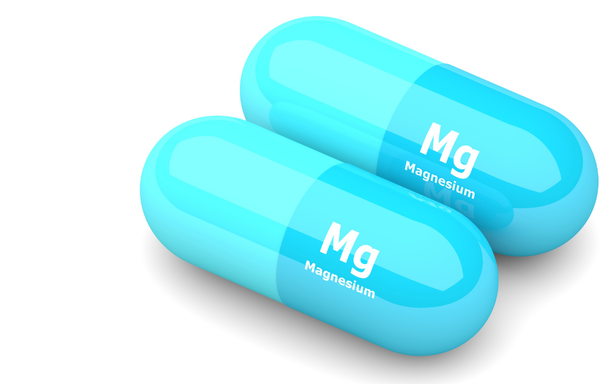

Magnesium and Insulin Resistance: The Real Reason You’re Depleted
Magnesium deficiency is a hot topic these days, and if you’ve spent any time online, you’ve probably heard that our soil is depleted, and that’s why most people need supplements. But let’s set the record straight—your magnesium levels aren’t low because of soil depletion. The real culprit? Insulin resistance and chronic inflammation.
How Insulin Resistance Depletes Magnesium
Insulin plays a key role in magnesium balance. When insulin levels are too high, as they are in insulin resistance, the body has a harder time holding onto magnesium. Instead of being properly absorbed and stored, excess magnesium gets dumped through urine. The more insulin-resistant you are, the more magnesium your body wastes.
Many studies suggest that magnesium depletion leads to insulin resistance, but the relationship is actually a two-way street. It’s both a cause and a consequence of insulin resistance. Low magnesium levels can impair insulin signaling and contribute to metabolic dysfunction, but at the same time, insulin resistance and chronic inflammation deplete magnesium stores. This creates a vicious cycle where worsening insulin resistance leads to greater magnesium depletion, which in turn further exacerbates metabolic issues.
However, it’s important to recognize that these studies primarily show correlations, not causation. Yes, magnesium levels and insulin resistance are closely linked, but correlation does not tell us which came first. Did low magnesium cause insulin resistance, or did insulin resistance deplete magnesium? The reality is likely both. But if we know that insulin resistance is at the root of the problem, then focusing on lowering insulin levels is key to restoring balance, not just supplementing with more magnesium.
It’s Not the Soil—It’s Your Metabolism
Even if soil depletion were a real issue (and to be clear, there’s little solid evidence that it’s responsible for widespread magnesium deficiency), it wouldn’t matter.
Why? Because as long as you’re eating a variety of plant-based foods, nuts, and seeds each day, you’re getting plenty of magnesium. Foods like pumpkin seeds, almonds, leafy greens, avocados, and dark chocolate are naturally rich in magnesium. If your diet is balanced and full of whole, unprocessed foods, you don’t need to waste money on expensive supplements.
And speaking of supplements—more expensive doesn’t mean better. Magnesium supplements have become a marketing goldmine, with companies pushing fancy, overpriced versions that promise “better absorption” or “calming effects.” But the truth is, your body will absorb what it needs as long as you’re eating properly and keeping insulin in check.
Magnesium, Insulin & Sleep—What’s Really Going On?
A lot of people take magnesium for sleep, but here’s the thing: it’s not necessarily the magnesium that’s the issue—it’s the insulin.
Insulin plays a huge role in melatonin production. If insulin is high and dysregulated, it can interfere with your body’s ability to make and use melatonin properly. This can lead to difficulty falling and staying asleep, which is why many people struggling with insulin resistance also deal with sleep disturbances.
So while magnesium can help with relaxation, if you’re not addressing the root cause (your insulin levels), you’re just slapping a Band-Aid on the problem.
Stop Chasing Supplements—Fix the Root Cause
If you’re constantly reaching for magnesium supplements but not addressing insulin resistance, you’re treating the symptom, not the problem.
Instead of spending money on overpriced pills and powders, focus on what actually works:
- Lowering insulin
- Reducing chronic inflammation
- Eating a magnesium-rich diet from whole foods






















